How solar batteries work
Adding a solar battery to your rooftop PV system will enable you to store excess energy generated during the day, so you can use it at night and other times of low generation, helping you import less from the grid (lowering your bills too!).
How do solar batteries work? Which technology is the safest to use? Let’s jump straight into some fundamentals for solar energy storage.
Understanding solar battery storage
In essence, solar PV systems transform sunlight into Direct Current (DC). The solar inverter then converts DC into Alternating Current (AC) – the kind of electricity that flows in the grid and that our everyday appliances use.
However, electricity is a one-of-a-kind commodity in the sense that it cannot stop flowing. You either use it at the point of generation or it needs to keep flowing elsewhere via the grid. When you generate more energy than you need (think a sunny afternoon when you’re not home), that energy flows back into the grid and your retailer pays you a Feed-in Tariff (FiT) for this.
Once a battery is added to the system, your switchboard will direct any excess energy being generated into the solar battery first instead of sending it straight to the grid.
Most modern solar batteries do this via a built-in inverter which converts the energy coming from the panels into a form of storable chemical energy which you can use later.
Battery manufacturers can use many different technologies and ways of arranging the components within a solar battery. Nowadays, Lithium-ion is the dominating technology in the domestic storage market because of better pricing, power outputs and depths of discharge, longer warranties and smaller, lighter frames.
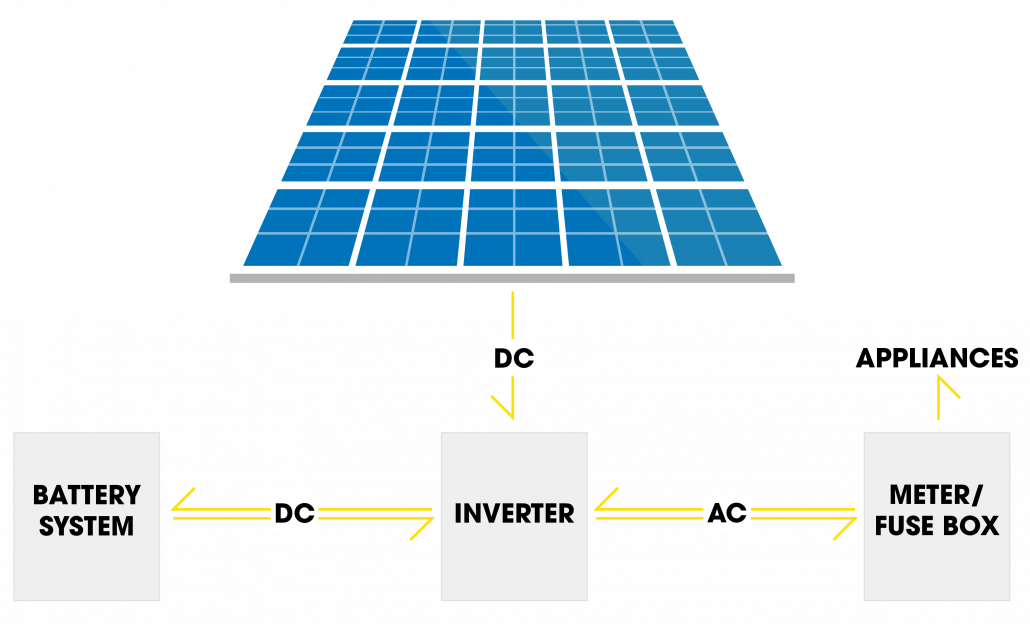
AC vs DC coupling
The DC produced from solar panels needs to be converted into AC to be used at home – the job of the inverter. Nevertheless, batteries require DC to charge and discharge, so there are 2 ways of integrating batteries into a PV solar system:
- AC coupling: Via a battery inverter which receives the AC output of the system inverter and transforms it back into DC. Some batteries, like the HIVE Solar, include built-in inverters for easy AC coupling.
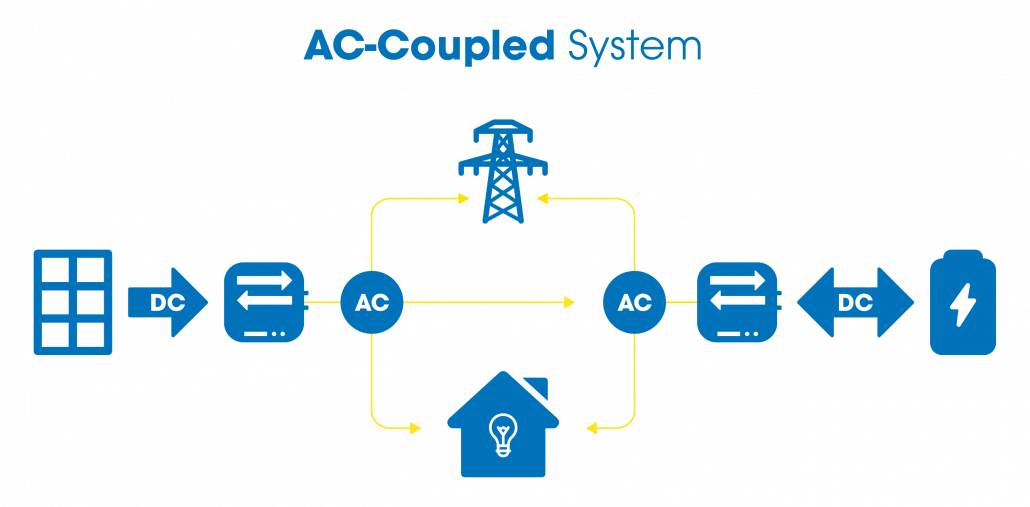
- DC coupling: Via a hybrid inverter containing a DC-DC converter.

Depending on where you live in Australia and who your electricity distributor is, there can be export limits to an inverter’s capacity per phase. Some distributors count battery inverters towards this limit, which can only be bypassed through DC coupling. However, AC coupling is usually cheaper and allows for easy retrofitting.
Our battery superheroes are happy to help you find out which option is the most appropriate for your circumstances.
How long can a battery supply energy for?
The answer to this question is, it depends.
Many factors come into play when choosing the right battery. For example, how many people live at home, how much power you need at once, your electricity consumption patterns, how much solar you have generated (and stored), which battery you have, etc.
It may sound counterintuitive, but having the biggest battery is not always the best either. Let’s use an analogy between solar batteries and a bucket of water: your panels are the tap, producing a certain amount of energy through the day. Some of that energy can be stored in a solar battery.
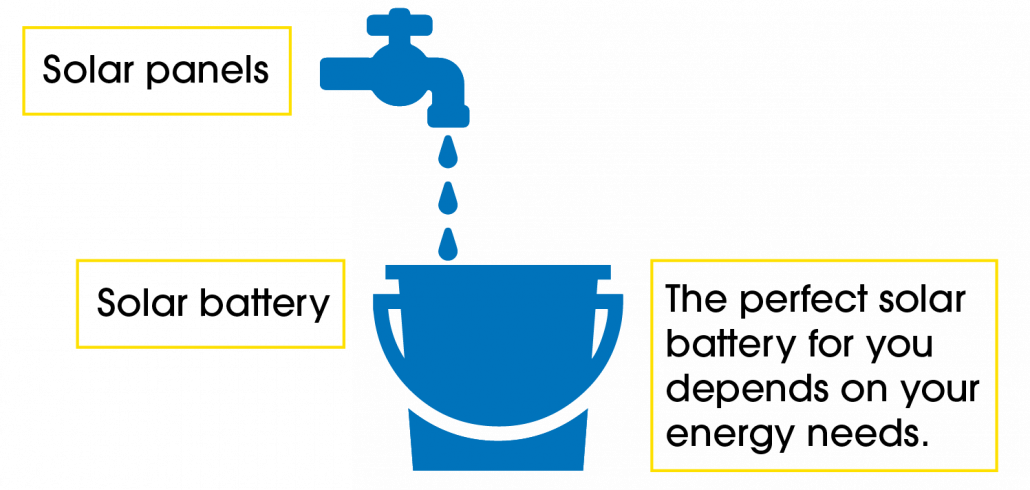
Any power you do not use when generated, gets diverted into the bucket (battery) until the bucket is full… yet what good is it to have a 5-litre bucket if you only have 1 litre of water coming out the tap? Same goes for a 1-litre bucket if there are 5 litres coming out the tap. The perfect solar battery for your home is the one that can charge off the power you don’t use through the day, and that can support your energy consumption through the night and other times when solar isn’t generating.
How safe are solar batteries?
If the prospect of adding a solar battery to your home is making you a bit anxious, we hope the following puts your mind at ease. Energy storage technology has come a long way since its introduction to the residential market. Lithium ion, lead acid, aqueous hybrid ion… most of these technologies are perfectly safe when installed by an accredited electrician and provided with regular maintenance.
Still, the safety of the chemistry behind the functioning of the battery does vary between different technologies. Even then, manufacturer’s quality and installation play a significant role to keep your home safe. In a nutshell, don’t hold back on the quality of the storage system and installation costs.
That’s why all our installers are CEC accredited. Solar Battery Group is also proud to sell the safest battery technology available at affordable prices, with built-in safeguards depending on the model, like extra casings or software integration to protect the battery and your home from any potential damage.
Get in touch with our battery superheroes today and find out how you can fend off those pesky electricity retailers and maximise your solar investment with a quality solar battery.

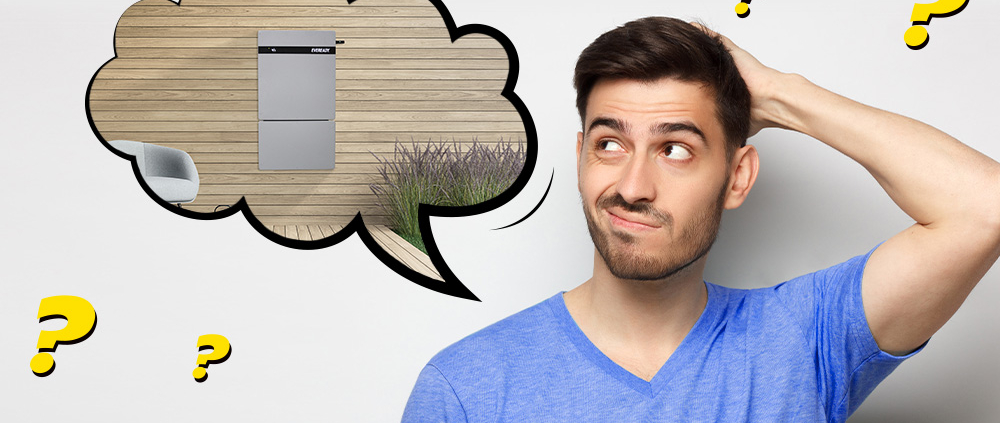 Solar Battery Group
Solar Battery Group Solar Battery Group
Solar Battery Group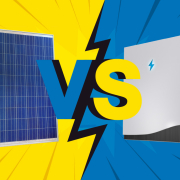 Solar Battery Group
Solar Battery Group Solar Battery Group
Solar Battery Group Solar Battery Group
Solar Battery Group Solar Battery Group
Solar Battery Group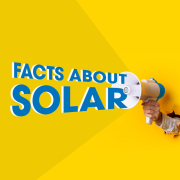 Solar Battery Group
Solar Battery Group Solar Battery Group
Solar Battery Group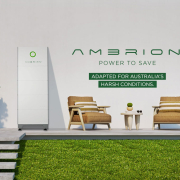 Solar Battery Group
Solar Battery Group
 Solar Battery group
Solar Battery group Solar Battery Group
Solar Battery Group